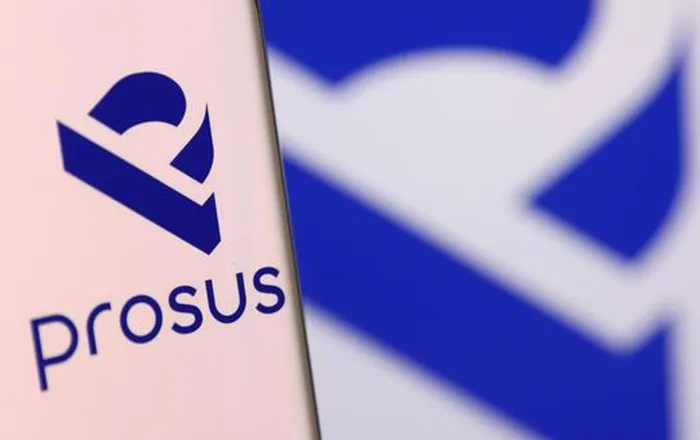
Amsterdam based global tech group Prosus has in the past year to March 31, 2025 focused on delivering earnings growth from its global consumer orientated internet platform businesses.
Image: File
Prosus, the Amsterdam and JSE-listed global technology group and Naspers subsidiary, gained up to 3.57% on the JSE Monday after reporting a maiden annual profit, a year after the appointment of CEO Fabricio Bloisi, who put the group on a new strategy.
The strategy that Bloisi began implementing in July last year, shortly after his appointment, entailed a move away from being mainly an investment holding company toward building large-scale lifestyle platforms across sectors like food delivery, classifieds, fintech, and edtech. The strong results meant the group was able to raise the dividend 100% to €0.20.
Shareholders also benefited from $50 billion in share buybacks that drove 15% growth in net asset value per share. Adjusted earnings before interest and tax (EBIT) increased to $179 million versus a loss of $118m last year.
Gryphon Asset Management research analyst Kasparus Treurnicht said the results indicated a timely focus on operations and EBIT growth given the increasingly tough operating environment, He said the higher share price on Monday, considering the small decline in share price of Prosus’ biggest earnings contributor Tencent, which is based in China, indicated that shareholders were happy with the e-commerce results.
He said Prosus may provide further details about its future plans for its stake in Tencent at a Capital Markets Day on Wednesday, May 25.
Prosus’s share price was trading higher at R987.48 on Monday afternoon, continuing a 47% rise in the price over 12 months.
“Prosus is rapidly transforming into an operating technology company, focused on lifestyle e-commerce, and powered by innovation and collaboration. I’m confident our enhanced culture and ecosystem approach, powered by Prosus, will fuel our journey to create the next $100bn in value,” Bloisi said on Monday morning in a statement.
E-commerce profitability improved to $443m from $38m, ahead of the group’s guidance.
“We expect this momentum to continue, and to add at least the same level of incremental EBIT in the 2026 financial year. The 2025 financial year marks the first year that Prosus is free cash flow positive, excluding the Tencent dividend, with a free cash flow improvement of $513m,” said Prosus CFO Nico Marais.
Over the past year, Prosus did two significant deals to strengthen its regional ecosystems. The acquisition of Despegar was completed in May 2025, and its products were being integrated into iFood’s Clube membership. Good progress was being made on the Just Eat Takeaway.com acquisition to create a new “AI-powered tech champion in Europe,” said Bloisi.
In the food delivery business, iFood exceeded growth and profitability targets and drove innovation and ecosystem expansion. The classifieds businesses reported a strong performance with a significant jump in profitability and expanding margins.
In the payments and fintech operations, strong topline growth and improving profitability were reported despite challenging market conditions. In Ethiopia, eMAG achieved the target of overall profitability for the financial year to March 31, 2025.
Chairman Koos Bekker said in the prosus annual report their open-ended share-repurchase program was designed to unlock value for shareholders by increasing net asset value per share over time.
“Since initiation in June 2022, we funded the process from the sale of 5% of Tencent’s shares, reducing our stake to 23.5%. By year end, the programme had reduced the free float cumulatively by some 27%. It will continue while the discount to NAV is at elevated levels,” Bekker said in the annual report.
He said that at the same time, Tencent remained the group’s most important single asset. “Its inventiveness and depth of engineering skill is superb. We are confident of sustainable growth,” Bekker said.
BUSINESS REPORT